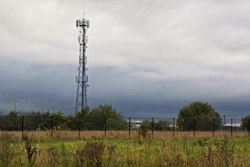The UK’s four operators have avoided the spectre of enforced national roaming in place of a deal to offer at least 90 percent geographical coverage by 2017.
EE, O2, Vodafone and Three have collectively agreed a £5 billion (€6.35 billion) investment programme, in return for a revision of annual licence fees and access to Government freehold buildings to install fresh infrastructure.
The agreement means operators will not have to embark on a national roaming programme, where consumers could jump networks in areas where they had no coverage. These plans were critised by the mobile industry as being messy and unworkable.
Operators will now guarantee voice and text use across 90 percent of the UK’s geography, which the UK government said would half the areas with poor coverage, so called “partial not-spots”. Full geographic coverage from operators will increase from 69 percent now to 85 percent by 2017.
The new stipulations will be enforceable by UK operator Ofcom with no public money being spent on helping operators improve their coverage.
Each of the UK’s operators welcomed the agreement. Derek McManus, Chief Operating Officer of O2, said: “A partnership between government and the mobile operators is required to maximise coverage across the UK, so this agreement is a good outcome for our customers. It will support investment in our network, while ensuring that strong competition remains between the different networks.”
Matthew Howett, Ovum Principal Analyst of Regulation, said the UK industry has benefited from not having national roaming imposed upon it, saying “common sense has prevailed”.
He said: “The cost, complexity, and side effects of national roaming made it such an unworkable fix that it really should never have made it into the list of possible options. While it works as a concept when you travel abroad, it wasn’t a solution to dealing with poor mobile coverage domestically.
“Aside from the cost, potential side effects include reduced battery life, and, for some customers, even losing data services altogether for prolonged periods. It also didn’t attempt to address poor data coverage, but only problems with 2G voice services.”
Howett added the issue of licence fees solved a problem that dates back more than five years, when operators were allowed to use the original 2G spectrum for other uses.
Adrian Baschnonga, Lead Telecoms Analyst at EY, added: “Despite the availability of ever faster 4G services, unreliable rural coverage levels have threatened to undermine improvements to the UK’s digital infrastructure. Initial proposals to solve the issue by allowing customers to switch networks presented a number of logistical challenges, and the promise of additional operator investment helps preserve the existing competitive environment. However, complete geographical coverage remains highly challenging – under current plans, the number of mobile data ‘not spots’ will only be halved by 2017.”
Read more:
One in three premises can access 4G in the UK, says Ofcom
License to share? Operators remain wedded to spectrum exclusivity





